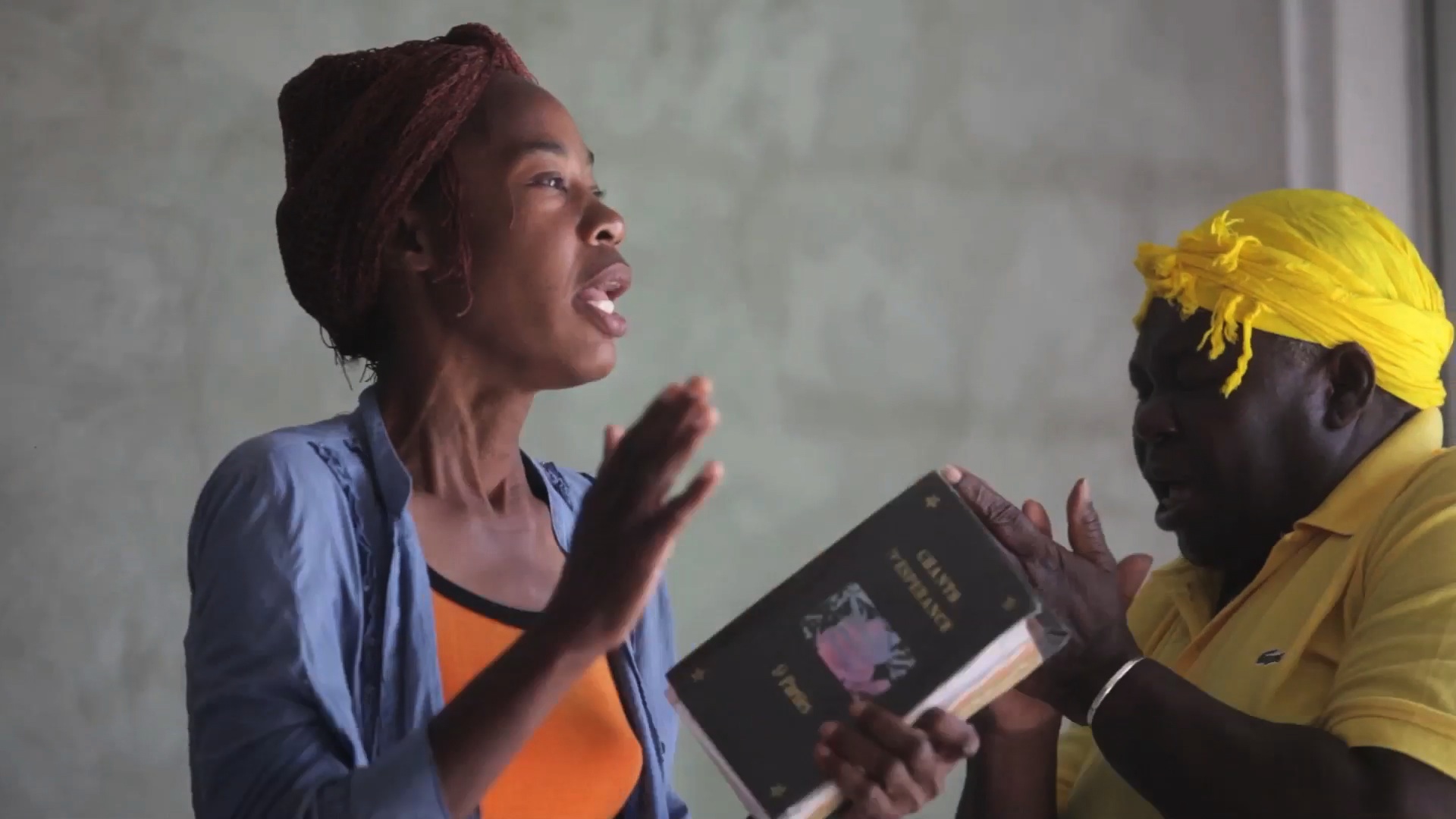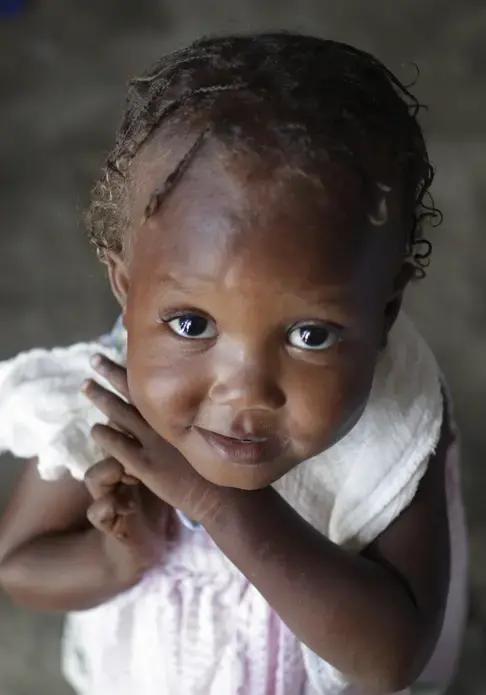ARCAHAIE, HAITI — John Gabin says God doesn't let him down.
In January, a stranger brought a tiny 4-year-old girl into the clinic where Gabin was working as an interpreter for doctors from Iowa. The man said the girl's mother had died, leaving him with a house full of children he couldn't feed. This girl, Jieline, was starving, he said.
"Her father just said, 'Doctor, would you take her from me?' " Gabin recalled.
Jieline, pronounced "Jill-ine," weighed a little more than 15 pounds, which is less than a typical 1-year-old. She spoke only a few words. Her hair was falling out.
"She could not stand by herself. She was too weak," Gabin recalled in the simple, clear English he learned so he could work for Americans.
The Iowa doctors don't take in babies, fearing that if they accepted one, they'd be flooded with desperate people trying to hand over children. Gabin went home that evening and pondered what to do. He had almost no money. He lived in a tiny, one-room house with his girlfriend, her mother and sister, plus Gabin's three children, two of whom he'd adopted. Plus, his girlfriend, Guerda Pierre, was six months pregnant.
Gabin, 28, is a quiet, slight man who stands about 5 foot 7. But he has immeasurable faith. He knew where to find the answer to whether he could add Jieline to his family.
"I asked God," he said, "and God said I could."
The next day, he found Jieline's father and told the man he would take Jieline home. The Iowans stocked him up with medicine and a special type of edible paste, similar to peanut butter, that is packed with calories and vitamins to supplement the diets of malnourished children.
In the early weeks, Gabin and Pierre woke up several times a night just to make sure the girl was breathing. Was he afraid Jieline would die? No, he said, because he explained to God that he couldn't bear to see that happen.
"I told God, 'Don't let me be ashamed.' "
In March, Gabin talked with God about his girlfriend, who could go into labor any day. The couple hoped she could hold off until their doctor friends returned from Iowa. Otherwise, she would have to give birth unattended in their home. The doctors arrived in Haiti on a Saturday afternoon. Pierre's contractions began early Sunday.
Gabin hired two motorcycle taxis, which took them for a jouncing, 15-minute ride to the clinic. If Pierre hadn't been so pregnant, they both could have fit on one motorcycle, saving some of the $1.50 cost. But the expense was worth the peace of mind of having medical professionals assist the birth.
As the contractions intensified, the doctors and nurses were in a room next door, participating in an impromptu Palm Sunday church service. They sang "Amazing Grace" in English while a clutch of Haitian ladies sang it in Creole. When the singing faded, worshippers could hear Pierre moaning on the other side of the concrete-block wall. Someone gestured from the doorway that the baby was coming, so two doctors and a nurse hustled over to help.
Within minutes, a healthy baby boy, Yve-John, came into the world. The Iowans offered to let Gabin and Pierre stay overnight. The couple said they appreciated the offer, but their family needed them. A few hours after the birth, they were back on motorcycle taxis, headed home with their newborn.
Their house is humble even by Haitian standards. The dirt floor measures about 12 feet by 14 feet. Rough-hewn wooden poles hold up the corrugated steel roof. Plastic tarps make up the walls. The furniture includes two double beds, a toddler bed and a makeshift bassinet, which fill most of the space.
The family cooks rice and beans outside on a charcoal fire. On their little table, they keep an oil lamp for light, and an old microwave oven in which they store food so mice can't get it.
Nearby is a small plot of land where Gabin plans to construct a concrete-block house with four rooms and an indoor bathroom. He will build it block by block, as money becomes available. He figures it will take two to four years.
On a late March day, the giggling of Jieline, who soon would turn 5, filled the one-room house. Her neatly braided hair had regained its healthy brown color. She walked normally, and she danced when her father sang. She still didn't talk much, and she looked like a 3-year-old, but she had gained nearly 6 pounds, about a 30 percent increase, in three months.
University of Iowa doctor Chris Buresh was there when Gabin decided to adopt Jieline.
"I said, 'John, I think this is not a good idea,' " Buresh recalled. "But he was really adamant about it. He was like, 'I've done this before. This girl really needs me.' "
When the Iowa team returned to Haiti, Buresh was stunned to see how well Jieline was faring. "Oh man, I hardly recognized her," he said.
Gabin is unsure how he will continue to support all these people, because steady jobs are rare here. As a boy, he hoped to become a doctor, but that was impossible because education was too expensive. He thinks he has the skills to run an orphanage, if somehow he could start one.
He'll talk to God about it.

Education Resource
Meet Tony Leys and Mary Chind: A Steady Hand for Haiti
Des Moines Register reporter Tony Leys and photojournalist Mary Chind talk about some of their...






